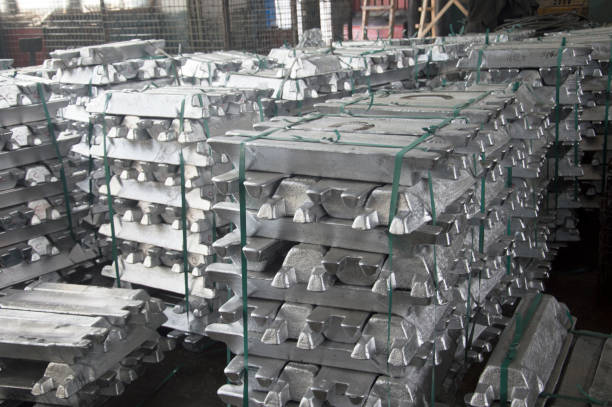Aluminum is a lightweight, durable, and versatile metal that is used in a wide range of industries, including aerospace, automotive, construction, and electronics. To meet the growing demand for aluminum products, manufacturers rely on efficient and effective production processes. One such process is aluminum casting, which involves the melting of aluminum and pouring it into molds to create various shapes and parts. At the heart of this process lies the aluminum casting machine, a crucial component in industrial aluminum manufacturing.
An aluminum casting machine is a complex piece of equipment designed specifically for the casting process. It consists of several essential components, including a furnace, a crucible, a casting chamber, and a cooling system. The furnace is responsible for heating the aluminum to its melting point, typically around 660 degrees Celsius, while the crucible holds the molten aluminum. The casting chamber is where the molds are placed, and the cooling system ensures that the cast aluminum solidifies quickly and evenly.
The operational principle of an aluminum casting machine is relatively straightforward. The process begins with the loading of aluminum into the crucible, which is then placed inside the furnace. The furnace is heated using either gas or electricity, gradually melting the aluminum until it becomes a liquid. Once the aluminum reaches the desired temperature, it is poured into the molds located in the casting chamber. The molds can be made of various materials, such as steel or sand, depending on the specific requirements of the casting project. After pouring, the molds are left to cool, allowing the aluminum to solidify and take the shape of the mold. Once the cast aluminum has solidified, the molds are opened, and the finished parts are removed.
The aluminum casting machine offers several advantages over other manufacturing processes. Firstly, it allows for the production of complex and intricate shapes that would be difficult or impossible to achieve using other methods. This makes it ideal for industries that require intricate parts with precise dimensions, such as the automotive and aerospace sectors. Additionally, aluminum casting offers a high degree of repeatability, ensuring consistent quality and reducing the likelihood of defects. Furthermore, the process is relatively cost-effective, as it requires fewer materials and less energy compared to other manufacturing techniques. Finally, aluminum casting is environmentally friendly, as it generates minimal waste and allows for the recycling of scrap aluminum.

However, like any industrial equipment, the aluminum casting machine also has its limitations and challenges. One of the main challenges is the control of the casting process to ensure consistent quality. Factors such as temperature, mold design, and pouring technique can significantly affect the final result. Therefore, operators must have a thorough understanding of the machine and its operation to minimize defects and inconsistencies. Another challenge is the maintenance and upkeep of the machine. Regular cleaning, lubrication, and inspection are essential to ensure the longevity and reliability of the equipment.
The aluminum casting machine plays a vital role in industrial aluminum manufacturing. Its ability to efficiently melt aluminum and pour it into molds allows for the production of a wide range of aluminum parts and products. The machine’s versatility, cost-effectiveness, and environmental friendliness make it a preferred choice for many industries. However, proper training and maintenance are necessary to ensure optimal performance and consistent quality. As the demand for aluminum products continues to grow, the importance of the aluminum casting machine in the manufacturing process will only continue to rise.
-

- Ruota di bicicletta per parti di fonderia in lega di magnesio con lavorazione CNC e finitura superficiale
-

- Alloggiamento motore centrale per veicoli elettrici pressofuso in lega di magnesio
-

- Coperchio dell'alloggiamento del computer portatile C
-

- Factory Custom China Bmx Cycles Road Sport Bicicletta per bambini 12 16 18 20 pollici Ciclo Mtb per bambini 6-10 anni
-

- Cassa di trasferimento per ricambi auto in pressofusione in lega di magnesio
-

- Parti e componenti lavorati a CNC

 0086-750-5616188
0086-750-5616188 +86 13392089688
+86 13392089688 sales@zhongmei-tech.com
sales@zhongmei-tech.com







